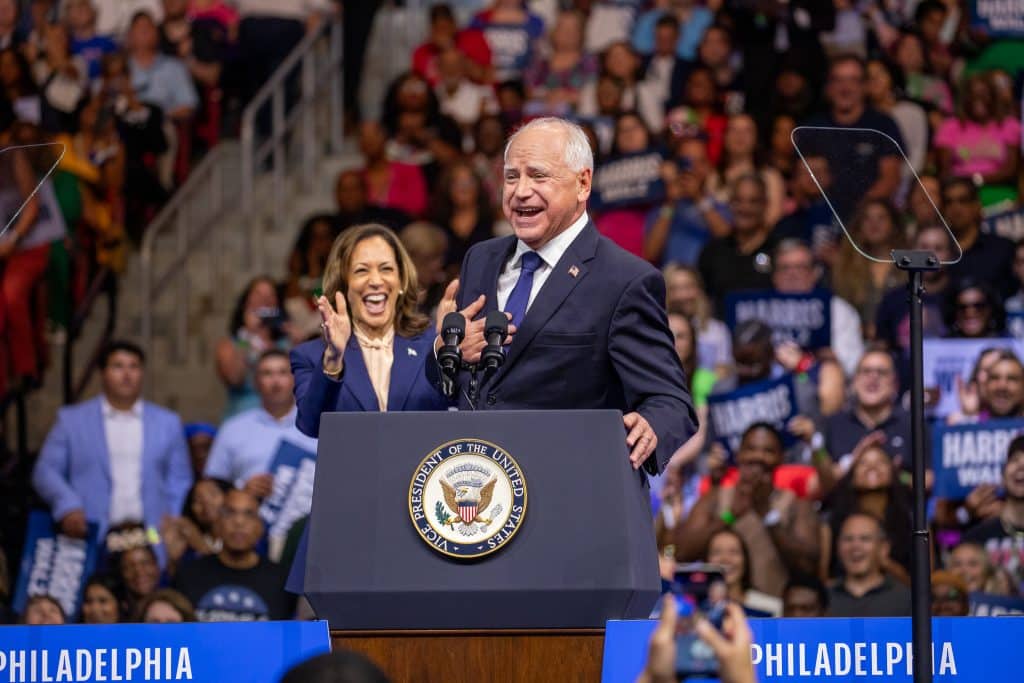At this moment we are entering another school year at the same time we consider a former public school teacher as our next vice president.
Tim Walz’s candidacy is salient on many levels. His demeanor is in stark contrast to former President Trump, or even JD Vance for that matter. Trump’s identity is wrapped up in performing one idea of what it means to be a man. He takes up a lot of space. He proudly demeans others as a way to make himself seem bigger and more powerful. And sadly, this resonates with many people.
As the mom of two boys, it is certainly not the model of manhood to which I want them to aspire.
Contrast that with Walz who is sometimes labeled as “America’s Dad.” Seeing and hearing him express pride and love for his family, his community, and his former students is refreshing. This softer side of Walz is complemented by his military service and his experience as a football coach, as well as serving as an adviser to his school’s gay-straight alliance student club. He serves as an example that manhood can include a continuum of ways of being. One of the many ways that Walz challenges stereotypes of masculinity is the fact that he was a school teacher, albeit a high school teacher, which statistically does attract more men than the younger grades. Still, our society has long labeled teaching as “women’s work.” Even the pay structure of teaching is embedded in the idea that it is a second income (Tyack and Cuban, 1995). And, although disrespect for the profession of teaching is not necessarily new, over the past few years attacks on public schools and public school teachers have ramped up.
READ: The Donald Trump-Moms for Liberty-Heritage Foundation Project 2025 Alliance
But here is the truth: the skills needed to be a successful teacher are right in line with the skills needed to be a successful leader and legislator.

These skills include organization, problem solving, empathy, and flexibility. Moreover, the best teachers think like researchers, use and analyze data to make decisions, are good collaborators, and act ethically. Finally, teachers practice public speaking and clearly communicating their ideas every day.
These skills track perfectly to what we need, but don’t always get, from our legislators. We want our public officials to be able to listen to, understand, and manage the concerns brought to them by their constituents. Teachers do that every day. And, they don’t get to have three layers of staff, a phone, and a website buffering the speed at which they deal with those concerns. Teachers are in the moment with their constituents, thinking on their feet and solving problems in real time. Give a teacher an hour to consider options and they are unstoppable.
A good legislator is thinking about policy issues and navigating political challenges. Teachers are addressing the diverse needs of their students and resolving classroom conflicts – again, in real time. That said, both teachers and legislators find themselves having to be responsive to shifting priorities as funding changes or political climate changes.
Legislators are often called upon to “reach across the aisle” and collaborate with colleagues. Teachers partner with colleagues, administrators, and parents. Groups that often have very different needs and wants. And, the teacher must somehow respond to all of them. Negotiating solutions to conflicts and differing opinions is another common skill.
The ability to use data in decision making is essential for our legislators. Our public officials need to be able to analyze legislation, understand policy and its impact, and use objective measures to determine how to move forward. Teachers are collecting, analyzing, and using data in decision making every day at multiple levels.
Both teachers and legislators are leaders. And, although the context of a public school and that of a publicly elected seat differ, both roles require a blend of interpersonal, organizational, and analytical skills. The fact that Walz taught history and social studies is just icing on the cake.







